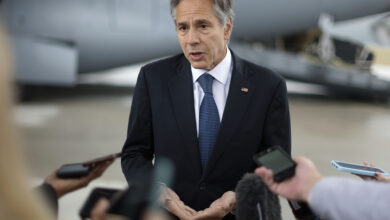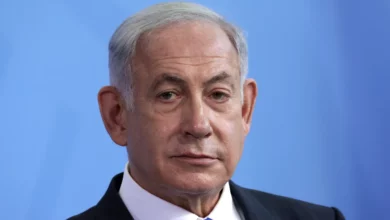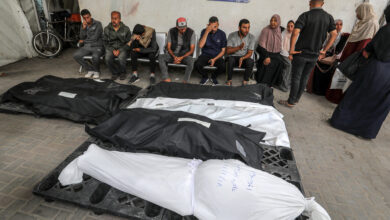Israeli and Palestinian negotiators gathered in the Jordanian capital of Amman on Tuesday for their first face-to-face meeting in 16 months, but both sides insisted full-blown talks remained some way off.
Jordanian Foreign Minister Nasser Judeh, who was to host the meeting between Israel's chief negotiator Yitzhak Molcho and his Palestinian counterpart Saeb Erakat, said it was a "serious" bid to help relaunch moribund peace talks.
Quartet envoy Tony Blair was also to attend the session, along with other officials of the grouping, made up of the European Union, Russia, the United Nations and the United States.
"It is a serious effort to find a common ground between the two sides and help restart direct peace talks," said Jordanian foreign ministry spokesperson Mohammad Kayed, whose country has a 1994 peace treaty with Israel.
"All sides should invest in this opportunity and help create the right environment for the success of this effort through refraining from unilateral and provocative actions."
Senior Israeli cabinet minister Dan Meridor, who holds the intelligence portfolio and is also deputy prime minister, told public radio that the meeting is "a positive development."
He said the meeting did not in itself constitute a return to direct talks, but expressed hope it would be a springboard that would "allow the Palestinians to return to negotiations.
"We were not asked to make declarations at the preliminary talks," he said, indicating that only in the context of actual negotiations would Israel lay out its positions.
Erakat made the same point in an interview with Voice of Palestine radio.
"This meeting will be devoted to discussing the possibility of making a breakthrough that could lead to the resumption of negotiations. Therefore, it will not mark the resumption of negotiations," he said.
He told reporters in the West Bank town of Ramallah that Israel should not waste the rare opportunity of a face-to-face meeting.
"This is a valuable opportunity for peace and Israel shouldn't waste it and once again be the reason for the failure of efforts by the international community, by the Quartet and by Jordan, to resume the negotiations," Erakat said.
Should Tuesday's meeting end without progress, a committee of officials from the Palestinian leadership will look into the available options and "present its recommendations to President (Mahmoud) Abbas within the next few days," he said.
Direct talks ground to a halt in September 2010, when an Israeli freeze on new West Bank construction expired and Prime Minister Benjamin Netanyahu declined to renew it.
Abbas has said he will not hold talks without a freeze on settlement building and agreement on a clear framework for talks based on 1967 lines.
The Quartet has been trying to draw the two sides back to the negotiating table, asking each to submit comprehensive proposals on territory and security.
US Secretary of State Hillary Clinton said on Monday that the US "welcomes and supports this positive development."
"We are hopeful that this direct exchange can help move us forward on the pathway proposed by the Quartet," she said in a statement.
"The need for a lasting peace is more urgent than ever. The status quo is not sustainable and the parties must act boldly to advance the cause of peace."
But the meeting sparked an angry reaction from the Islamist Hamas movement which has controlled the Gaza Strip since ousting Abbas's forces in 2007 and had been inching towards a reconciliation deal with the Palestinian leadership.
"We demand a boycott of this meeting," Hamas spokesman Sami Abu Zuhri told AFP. "Going to such a meeting is only betting on failure."
The leftist Popular Front for the Liberation of Palestine (PFLP) was also strongly critical of the meeting, calling it a "fatal error" which would force the Palestinians back into another pointless waiting game.




